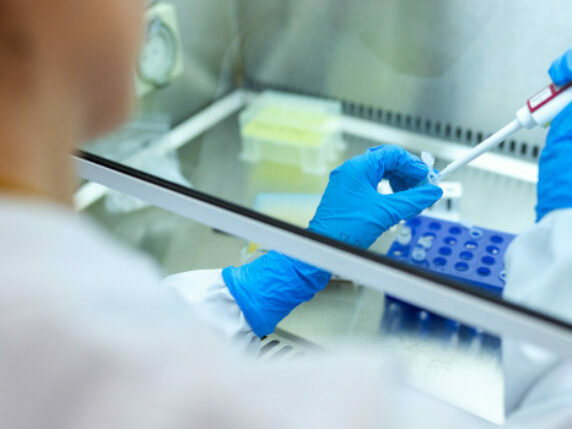We tasked Harper James legal assistant and budding intellectual property whizz, Adam Khattak, with researching the implications patents will have in the fight against COVID-19. Here’s what he discovered:
The outbreak of COVID-19 coronavirus has prompted a global race to find a vaccine to fight the disease. Inevitably, companies will want to protect any technologies they design to combat the virus. Patent rights will play a fundamental role in that protection. A patent, after all, gives its owner the right to exclude others from making, using, selling and importing a protected article for a set number of years.
Historically, governments have struggled to balance the monopoly rights of private companies with the interests of the general public. Due to the severity and scale of the COVID-19 outbreak, there is a danger that affording pharmaceutical companies exclusive rights and control of treatment could cost the lives of tens of thousands of people. It’s a moral conflict that we’ve seen before, most memorably in the HIV/AIDS crisis of the 1980s.
Comparisons with the HIV/AIDS crisis
Estimates put the overall global death toll from HIV/AIDS at 32 million people since the outbreak began in the early 1980s. When it first emerged, HIV was novel, unknown, and there was no effective treatment. The global reaction to the HIV crisis then is comparable to the one sparked by COVID-19 today, with pharmaceutical companies quickly scrambling to produce medicines to combat the disease.
Developing countries such as South Africa and India have suffered badly from the HIV/AIDS illness. A key reason for this is the cost of treatment over the last few decades. Owners of pharmaceutical patents have a monopoly right to control the production and price of their drug. In the context of a pandemic, governments need to weigh up the level of protection given to the patent owner against the wider common good. Some pharmaceutical companies have engaged in a practice known as ‘evergreening’: extending the lifetime of patents close to expiration date. Companies have applied for new patents (after making only minor adjustments to pharmaceutical mixtures) or bought out competitors to prevent their products from making it to market.
The processes involved in patent approval are also a barrier to affordability of treatment. The speed of the approval process directly limits the number of drugs available on the market. Companies which are first to market are given further influence and control by being the sole provider of these medicines, meaning they can almost entirely dictate prices and availability. In the fight against HIV, this slow approval process and monopolistic influence have indirectly led to a greater HIV drug resistance and increased the number of opportunistic infections.
Former first Assistant Director-General of the World Health Organisation on HIV/AIDS, Dr Jack Chow, explained on Sky News that even after our experiences of the AIDS pandemic, we have not seen something as ‘intense and vicious’ as the coronavirus. He urges government strategy to be based on scientific and expert analysis, ‘not politics or economics’. Dr Chow expressed his ‘fears for sub-Saharan Africa and war-torn countries such as Syria’ where COVID-19 could become embedded into society and difficult to uproot.
Striking a balance for the common good
For the sake of protecting their populations and the global economy, governments may have to look to curtail the exclusivity of patents. The IPKat published a notable article on this dilemma.
Time Magazine put forward the idea of a large cash prize to award the firm that develops a successful coronavirus vaccine. To ensure universal access, the prize would carry the condition that any winning vaccine should be priced at low or no cost.
Another option could be for governments to issue compulsory licenses, which allow someone to produce a patented product or process without the consent of the patent owner. Though controversial, the aim of compulsory licenses is to protect the interests of the public from the dangers of monopoly rights. Where compulsory licenses have been granted, they have led to significant reductions in drug prices. In 2012, an Indian generic pharmaceutical company (Natco Pharma) was granted a compulsory licence for Sorafenib, an anticancer drug, after that country’s patent office ruled the patent holder had not done enough to make the drug available to Indian citizens. Natco Pharma was required to pay 6% royalties to the German company and proposed selling its version for 97% less than the German company’s price.
Overriding patent rights in the UK
In the UK, compulsory licences are provided for in section 48 of the Patents Act 1977. This allows anyone, in certain circumstances, to make an application for a licence to use a patented product or process. An application can be made where demand for the product is not being met in the UK, or where the patentee has refused to grant licences on reasonable terms for the exploitation of an invention which is a technical advance of considerable economic significance.
Either situation could apply in the coming months and compulsory licences could well become vital in the fight against COVID-19.
Sections 55-59 of the Act relate to the government’s ability to use patented inventions ‘for the service of the Crown’. This provides for any government department or person to perform certain acts for the services of the Crown, which would otherwise infringe a patent without the consent of the patent owner. In times of emergency, the powers and authorised acts are extended further. The law covers compensation to the patent owner for loss of profits suffered as a result of the use.
These provisions mainly apply to military scenarios; however, the emergency provisions have never been used since the Act has come into force. Given the effects the coronavirus is having on our way of life, it is entirely possible that it meets the definition of an emergency. Many other jurisdictions have similar legislation, and some are already relying on it to assist in their response to COVID-19.
What are other countries doing?
The Israeli government recently authorised the use of three patents for maintenance of essential supplies and services to its citizens. For the first time since the introduction of the Israel Patents Law in 1967, the state issued a permit for the use of three Israeli patents covering the antiretrovirus drug Kaletra to import and use the drug in the treatment of patients suffering from COVID-19. The drug is mainly used to treat HIV, but has recently been found to be effective in the treatment of COVID-19 patients.
Like the UK, Israeli patent law permits the exploitation of a patent by the government when it is deemed to be of national interest. As the Kaletra drug showed promise for treating COVID-19 and the patentee was not able to supply Israel with enough of the drug, it was deemed sufficient to rely on the legislation to exploit the drug.
Chile’s lower house of parliament also passed nearly unanimously a resolution to allow the government to issue compulsory licences for any medicines, vaccines and other technologies useful in the fight against COVID-19.
Time is of the essence
The World Health Organisation reported in March 2020 that out of the 44 COVID-19 vaccines in clinical evaluation, two have reached the human trials stage. Patents will inevitably be taken out on the most successful vaccines.
The race to become the legal owner of these new treatments is accelerating. A virology institute in Wuhan under the Chinese Academy of Sciences faced criticism after it was revealed that it had applied for a patent for a US-developed drug to treat COVID-19. Though the drug has not been approved, it showed promise in pre-trial testing. If the patent application is approved, Gilead (the creator of the drug) may not be able to sell its own drug for the purposes of treating COVID-19 without the institute’s consent.
Donald Trump too has tried to get an unfair advantage for the US in the race. It was reported that POTUS offered ‘large sums of money’ to get exclusive access to a coronavirus vaccine being developed by a German company. The request involved asking the German company to move its research wing to the US and to develop the vaccine for the US only. The move provoked an angry reaction in Germany from both politicians and citizens who demanded that Berlin do everything possible to prevent the US from controlling access to the eventual COVID-19 vaccine.
History may well be in danger of repeating itself, as corporations and government institutions head down patent protection routes, without considering the potentially devastating global consequences that may follow. Seventy years ago, the since-repealed UK Patents Act 1949 allowed any person to apply for a licence to exploit a ‘substance capable of being used for a food or medicine’. It is possible that 2020’s crisis will result in a revision of modern patent laws and how the public views patent rights.







